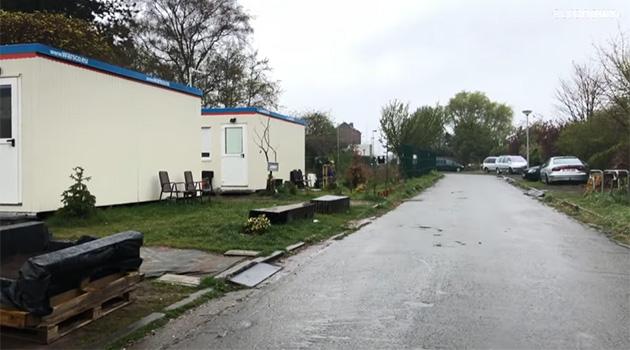Belgian city relocates immigrant Romani families from slums to residential sites on its outskirts

The Euronews television station reports that the Belgian city of Ghent is hoping to better integrate immigrant Romani families by taking advantage of nonprofit organizations’ aid and assistance. Ghent has now built special residential sites in its northern outskirts in an attempt to better integrate such families into Belgian society.
The bathrooms and kitchens in the units are communally shared by more than one family living there. A representative of the Ghent County Council, Hannes Schotte, told Euronews that the city’s inhabitants have said they will no longer tolerate the hosting of immigrant Romani people in the city’s slums because the conditions there are inhumane.
“The people who lived in the slums before are here [on the outskirts] now,” Schotte said. “The city is not tolerating anymore that more slums are built.”
“That’s very clear for the city that they don’t want this because it is inhumane,” the county politician said. “They don’t want this situation anymore.”
Euronews interviewed the family of Mario and Roxana, Romani people living on one of the new residential sites. Their children now have access to the integration opportunities provided by cooking classes, the local schools, and playgroups.
“This is a good thing for me and my family,” Mario said. “I came here to work, to be stable and to go forward.”
He has to find himself a job and regular housing for his family soon, and the Caritas NGO, which administers the new residential site, can aid him with that. “After three years [on the site], people will be directed towards the regular housing markets, or they will find other housing solutions, which can be here in Belgium or in their country of origin if they are not able to integrate here in Belgium,” Caritas project worker Gilles Van der Auwermeulen told Euronews.
At the start of June, MEPs debated what it will take for Europe to achieve actual equality for people of Romani origin. “Up to 80% [of Romani people] live in poverty because of their… ethnicity,” Romeo Franz, a German MEP of Romani descent, said earlier this month.
“The EU has the power to enable an Equality and Antigypsyism law for my people, and the European Parliament already took the first step [towards such a law] in September 2020,” Franz said. NGOs want the EU Member States to implement their national Roma strategies and are emphasizing that this is even more urgent now, as many Romani people are fleeing Russia’s war on Ukraine and need support from Europe.
